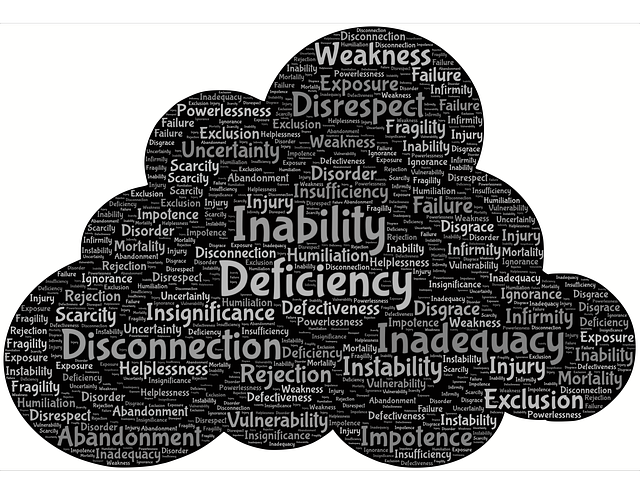Is your Inner Critic pushing you too hard?
Do you find yourself to be a harsh critic – of yourself? Feeling like you never do anything as well as you could or should have? This voice in your head is something that most of us share and it is often known as the Inner Critic.
Over the years of working with hundreds of people with M.E. and fibromyalgia, I’ve become rather familiar with the Inner Critic. In fact I’m surprised how often this harsh character pops up. If you have felt that sense of never managing to do as well as you should, then you may know who I’m talking about: a bit like a strict parent or teacher who sits on your shoulder and makes comments like “Well you may think you did that well, but you could have done it even better.” For those patients with a harsh inner critic, it was their inability to know when they had done enough and that it was time to stop and rest that resulted in the eventual burn-out. The Inner Critic is the flipside of perfectionism.
It’s the Inner Critic that drives us to work harder and harder, and prevents us from taking pleasure in what we have achieved. I know as a child I was taught never to “blow my own trumpet.” In other words not to brag. Modesty may seem like a virtue, and most of us would prefer not to listen to someone going on at length about how brilliant they are. But it’s also important to notice when we have done something well, and to be able to recognise when we have done enough so that we can stop and rest.
For many of us it can seem unbelievably difficult to balance the demands of work, children, partner, parents; and then when do I get time to spend time on myself? Do I even realise that I need to. But we are bombarded with messages in the media about Me-Time. And strangely we can feel guilty about not doing all those things we meant to do for ourselves - the exercise, the meditation, the walk in the park.
How does the Inner Critic impact on our health?
It is that inability to know when to stop that leads to ill-health. Working long into the night, day after day; working on weekends; and constantly belittling our achievements, all this leads to a level of stress that is damaging to our health. It might be migraines, constant colds or other infections, or problems with digestion; or it might be something really debilitating such as fibromyalgia, M.E. or auto-immune disorders. And since 2020 it may be long-haul covid. All of these health problems are your body telling you that you need to slow down or even stop. But with the Inner Critic constantly telling you that you are not doing enough, it may seem easier to ignore the messages from your body. That is until it breaks down completely and won’t even let you get out of bed.
What can I do about my Inner Critic?
The solution may not be to ignore the Inner Critic, though. That option can feel like a losing battle. Rather, it is preferable to transform your inner critic into a voice which is more supportive and well... less critical. There is a process you can go through of acknowledging what the Inner Critic has given you, while at the same time enabling it to see you as a responsible adult.
In fact your Inner Critic is hundreds of thousands of years old. It evolved to protect us humans by making sure that we did not get cast out into the wilderness by our clan. Aside from the fear of being eaten by a large predator (which let's face it is not something many of us worry about any more), our biggest fear is most often the fear of rejection.
So the Inner Critic is designed to protect you from the danger of being excluded from the clan. It has a number of messages for us including "make sure you don't let your clan down," and "don't upset the grown-ups." So in a way it is your friend - it's just looking our for your interests. Unfortunately it tends to take on board those messages you were fed by parents, teachers and grandparents, aunts and uncles, when you were still a child. Because of course they are your clan.
So when you hear that voice in your head telling you that you could have done that better, or that you need to put in a couple more hours to do the job well enough, you can thank it for being so diligent in looking after you and all your ancestors going back thousands of years; you can praise it for keeping you safe; and you can say "don't worry, I've got this." And remember the voice of your body is just as important. It also needs to be heard.
Eventually, given respectful feedback, your inner critic may be transformed into your Inner Coach.
If you are looking for help with your inner critic or with feeling not good enough, get in touch. You can email me on hello@sorrelpindar.co.uk; or book in for an Inner Resilience Connection Call. If you're not ready for that yet, I have a free 15 minute catch-up call.
